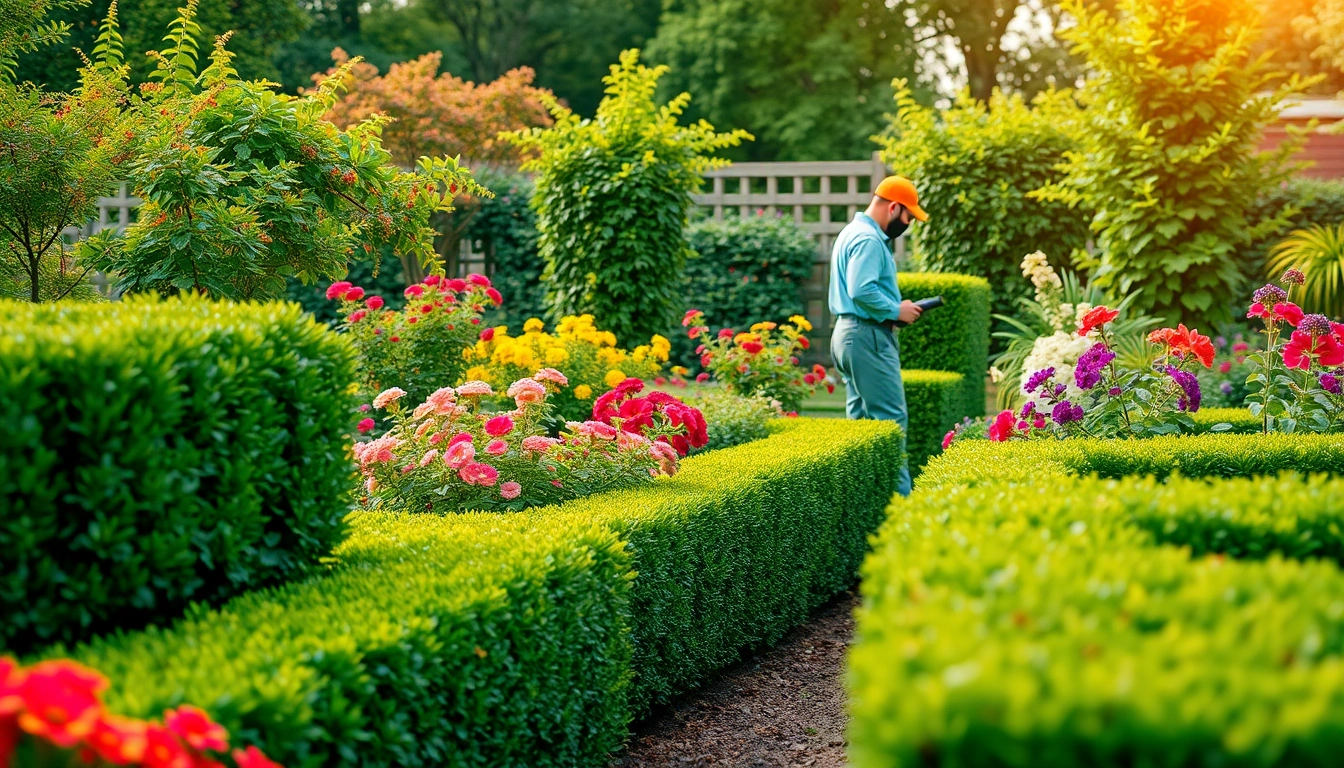Understanding the Importance of Garden Maintenance Services
Gardens are not just patches of greenery; they are vibrant ecosystems that enhance the beauty of our surroundings and provide countless benefits. Regularly investing in a garden maintenance service is crucial for maximizing these benefits. Whether you’re a homeowner looking to beautify your outdoor space or a property manager tasked with maintaining a public garden, understanding the significance of systematic garden maintenance is vital.
Why Regular Maintenance is Essential
The health of your garden largely depends on regular maintenance. Neglecting it not only diminishes its aesthetic appeal but can also lead to various issues that can require extensive remediation. Here are a few reasons why regular maintenance is essential:
- Health of Plants: Regular care ensures that plants receive the nutrients they need, preventing diseases and promoting growth.
- Aesthetics: A well-maintained garden enhances property value and improves first impressions.
- Weed Control: Frequent maintenance helps suppress weeds that compete with garden plants for resources.
- Insect and Pest Management: Regular inspections can catch pest issues early, allowing for timely interventions.
Common Garden Issues and Solutions
Despite best efforts, gardens can encounter various challenges:
- Overgrown Plants: Left unmanaged, plants can grow excessively. Solution: Regular pruning and trimming ensure they remain in optimal shape.
- Pest Infestation: Insects can wreak havoc. Solution: Employing integrated pest management (IPM) strategies can significantly mitigate pest threats.
- Soil Degradation: Continual planting can deplete soil nutrients. Solution: Regular soil testing and amendments can restore balance.
- Water Issues: Poor drainage can cause root rot, while insufficient water can lead to plant stress. Solution: Regularly check your irrigation practices and adapt as necessary.
Benefits of Professional Garden Care
While some homeowners take on maintenance themselves, there are tremendous benefits to hiring professionals:
- Expertise: Professionals bring years of training and experience to address complex garden issues.
- Time-Saving: Delegating maintenance gives homeowners more personal time, freeing them from labor-intensive tasks.
- Access to Tools and Products: Professionals have access to superior tools and eco-friendly products that can yield better results.
- Customized Care: Professionals conduct assessments and tailor their services to the specific needs of the garden.
Key Services Included in Garden Maintenance
Lawn Care: Mowing and Fertilization
Lawn care is often the cornerstone of garden maintenance. Regular mowing keeps the grass at an optimal height, promoting healthy growth and preventing pests:
- Mowing: Proper mowing techniques involve cutting grass to a height that prevents weed growth while promoting strong root development. A general rule is to mow when grass reaches one-third taller than the desired height.
- Fertilization: A balanced fertilization regime provides essential nutrients. Depending on the season, slow-release fertilizers or organic compost may be recommended.
Pruning and Plant Care
Pruning is a critical aspect of maintaining plant health:
- Timing: Different plants require pruning at varying times of the year, which necessitates a tailored approach.
- Technique: Knowing when and where to prune—whether it be to shape plants or remove dead branches—ensures vigorous growth and blooming.
Pest Control Techniques for Your Garden
Integrated pest management is an essential strategy for controlling pests while minimizing harm to beneficial insects and the environment:
- Prevention: Create a healthy ecosystem that supports beneficial insects like ladybugs and bees.
- Monitoring: Regularly inspect plants for signs of pests or disease, using traps and other methods to gauge their presence.
- Control Measures: This can include physical barriers, organic pesticides, and promoting natural predators.
Choosing the Right Garden Maintenance Service
Evaluating Service Providers
When selecting a garden maintenance service, consider factors that will affect your experience:
- Services Offered: Verify that the service offers the maintenance options your garden requires.
- Experience and Credentials: Look for providers with a proven track record and certifications in horticulture or landscaping.
- Insurance: Ensure the company is insured to protect against potential liabilities.
Questions to Ask Before Hiring
Before finalizing a decision, ask your prospective service providers thoughtful questions:
- What is your approach to lawn care?
- Can you provide references from past clients?
- How do you handle pest management?
- What is your pricing structure?
Reading Reviews and Gathering Recommendations
Client feedback is invaluable when choosing a provider. Look for online reviews on platforms like Google and Yelp, and seek personal recommendations from neighbors and friends. A mix of positive testimonials can help guide your choice towards reliable service.
Cost Considerations for Garden Maintenance Services
Understanding Pricing Structures
The cost of garden maintenance services varies based on several factors:
- Size of the Garden: Larger gardens require more time and resources, affecting overall cost.
- Type of Services: Basic services like mowing may cost less than specialized services such as landscape design.
- Frequency of Service: Regularly scheduled maintenance may offer discounted rates compared to one-time services.
Value vs. Cost Analysis
While it’s essential to consider costs, assess the value you’re receiving. Investing in professional services can lead to higher property values, a more aesthetically pleasing landscape, and reduced long-term costs associated with neglect.
Budgeting for Garden Care
Budgeting for garden maintenance involves forecasting your expenses and prioritizing services that provide the best return on investment:
- Establish a Rounding Budget: Determine monthly or annual savings specifically for garden maintenance.
- Plan for Seasonal Needs: Consider higher costs in peak seasons for services such as pruning and fertilization.
- Prioritize Essential Services: Focus your budget on services that maintain health and reduce the likelihood of larger-scale interventions.
Maximizing Your Garden’s Potential
DIY Tips to Enhance Maintenance
Even with professional services, homeowners can contribute to garden care through various DIY strategies:
- Mulching: Adding a layer of mulch conserves soil moisture and suppresses weeds.
- Regular Weeding: Spend a few minutes each week removing weeds to keep them from taking over.
- Seasonal Clean-Up: Clearing debris helps reduce habitats for pests and disease.
Seasonal Gardening Strategies
Your garden requires different care strategies depending on the season. Here are some season-specific tips:
- Spring: Focus on cleaning up debris, aerating soil, and planting new seeds.
- Summer: Regular watering, pest monitoring, and trimming ensure plants thrive during heat.
- Fall: This is the time for planting perennials and prepping for winter by mulching and clean-up.
- Winter: While many plants lie dormant, pruning of certain trees and shrubs can occur.
Integrating Sustainable Practices in Garden Care
More gardeners are embracing eco-friendly practices to help the environment:
- Organic Products: Utilize organic fertilizers and pesticides that are less harmful to the ecosystem.
- Water Conservation: Implement rainwater collection systems and drip irrigation to conserve water.
- Diverse Planting: Diverse plantings can also support local wildlife and create an ecosystem that is less prone to disease and pest problems.


